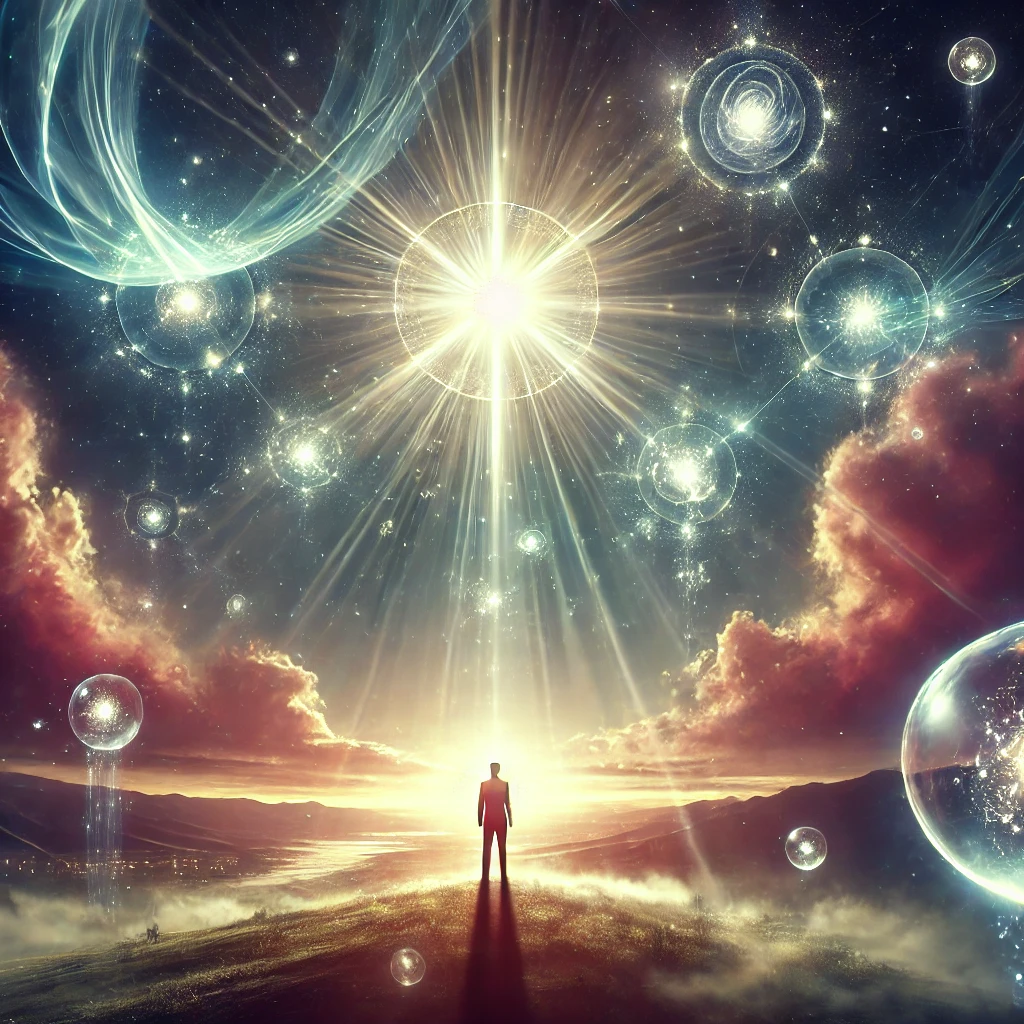Spirituality vs Religion: What's the Difference?
Learn the key differences between spirituality and religion. Find unique beliefs, practices, and views on the afterlife to match your journey.
Many people use the terms spirituality and religion interchangeably, but they represent distinct concepts. This overlap often leads to confusion, leaving individuals wondering where their beliefs align. Understanding these differences is useful for personal growth, helping you identify practices and principles that resonate most.
In this article, we will look at the definitions and characteristics of spirituality vs religion. You’ll learn how their beliefs, rituals, and structures differ, for example with spiritualism guided by a psychic reader, and how they guide followers in unique ways. We’ll also take a look at how these frameworks shape perceptions of the afterlife and examine the role of intuition in navigating personal beliefs.
Whether you lean towards one or embrace both, this guide will help clarify their distinctions to aid your journey. Whether you’re looking for spirituality, religion, or both, this guide offers insights to clarify your path.
What is Spirituality?
Spirituality is deeply personal, often rooted in individual experiences rather than external doctrines. It emphasises an inner connection, self-discovery, and a sense of universal energy transcending traditional structures. Unlike religion, spirituality often evolves organically, shaped by personal reflection and practices.
Many spiritual practices focus on mindfulness and self-awareness, such as meditation, journaling, or energy work. These activities foster inner peace and a connection to something greater without the boundaries of institutional frameworks.
Spirituality encompasses a wide range of personal practices and experiences. For example, individuals might practice mindfulness through daily meditation, engage in yoga to match their body and mind, or even explore energy healing techniques like Reiki. Some find spirituality in nature, seeing a walk in the woods or watching the sunrise as profound spiritual moments. These practices are often fluid and adaptable, allowing people to choose what resonates most with their unique journey.
What is Religion?

Religion, by contrast, is a structured system of beliefs and practices often centred on a specific deity or doctrine. These systems provide moral codes, rituals, and a sense of community. Sacred texts, such as the Bible, Quran, or Bhagavad Gita, guide adherents in their spiritual and moral lives.
Religions like Christianity, Islam, and Hinduism offer collective worship and rituals which strengthen community bonds. While religion often requires adherence to set doctrines, its structure can provide clarity and support for those seeking moral guidance and belonging.
Religious practices are often centred around shared rituals and community engagement. For instance, attending Sunday services in Christianity, participating in Ramadan fasting in Islam, or celebrating Diwali in Hinduism are pivotal elements of religious life.
These activities provide opportunities for reflection, worship, and connection within a shared belief system. Religions also guide adherents through milestones like baptisms, weddings, and funerals, underscoring their role in life’s most significant moments.
Beliefs
Beliefs are a cornerstone of both spirituality and religion, but they differ significantly in focus. Spirituality champions personal truth, encouraging individuals to seek their understanding of the universe. This approach often embraces universal concepts of divinity and interconnectedness.
Religion, on the other hand, adheres to established doctrines and teachings. These beliefs often centre on specific interpretations of divinity and life’s purpose, offering clear moral frameworks. While religion appeals to those seeking concrete guidance, spirituality may resonate with individuals who value fluid and personalised belief systems.
Rituals and Practices
Rituals in spirituality are often informal and matched to individual needs. Practices like meditation, affirmations, or energy work to reflect a focus on personal growth. These rituals adapt easily to changing circumstances and individual preferences.
Religion, by comparison, is defined by formalised rituals. Prayers, sacraments, and ceremonies play an integral role, in fostering connection with the divine and the community. For example, weekly worship services or traditional celebrations like Ramadan exemplify religion’s structured approach. These differences highlight the innovation of spirituality versus the tradition of religion.
Structure
The structure of religion and spirituality reveals stark contrasts. Religion typically operates within a formal hierarchy, complete with leadership roles and organised communities. This structure supports collective worship and shared traditions but can limit individual expression.
Spirituality, however, is fluid and self-guided. It encourages personal accountability and allows followers to define their practices independently. While spirituality offers freedom, religion provides stability through its clear organisational framework.
Role of Intuition
Have you ever had a gut feeling that guided you toward the right decision or helped you avoid a potential mistake? This sense of inner knowing, often described as intuition, is a hallmark of spirituality. Unlike religious teachings that rely on established doctrines, spirituality invites you to trust and find out more about this inner voice.
Intuition is a defining aspect of spirituality. It encourages individuals to trust their inner voice as a guiding force, prioritising personal experience over external validation. Practices like tarot reading or energy healing often provide this intuitive approach.
In religion, guidance often comes from sacred texts or religious authorities. These sources provide definitive answers, creating a sense of certainty for followers. While intuition is valued, it is typically balanced with deference to established teachings.
Perception of the Afterlife

Spirituality and religion offer differing views on the afterlife. Spiritual beliefs are often open-ended, focusing on concepts like reincarnation or the soul’s evolution. These perspectives allow for a broader interpretation of existence beyond death.
Religion, by contrast, offers more concrete doctrines. Many faiths, such as Christianity and Islam, describe specific destinations like heaven or hell. These structured views can provide comfort and clarity, while spirituality’s flexibility appeals to those seeking more interpretive answers.
Imagine someone standing at a crossroads in their life—uncertain, seeking guidance, and yearning for answers. They might turn to religion for the comfort of structured beliefs and community support, or to spirituality for the freedom to find their truths. Both paths offer unique insights, allowing the individual to grow in their way. As you reflect on your journey, consider what matches your values and offers you the sense of peace and connection you seek.
Spirituality and religion are distinct yet interconnected pathways to understanding existence. Religion offers structured guidance through shared beliefs and practices, while spirituality embraces individual exploration and intuition. Remember that both frameworks can enrich lives, either independently or in harmony.
Submit A Comment
Create a Psychic Sofa account today!
Join the Psychic Sofa Community Today and get access to:
- Get notified by (FREE) SMS text when a reader becomes available!
- Latest offers and members only exclusives
- Add favourite readers to your profile




Comments
No comments have been made yet